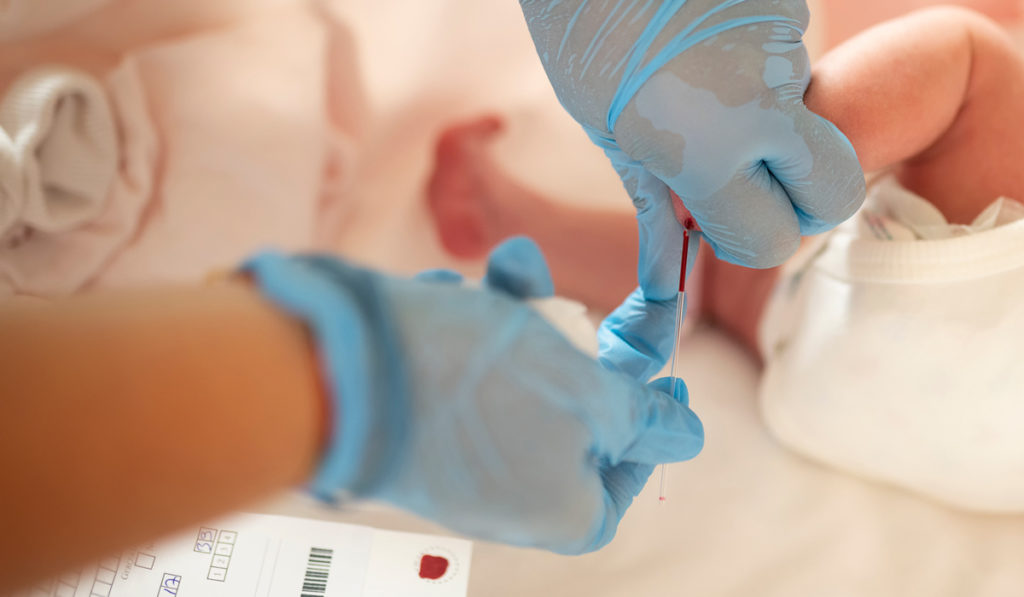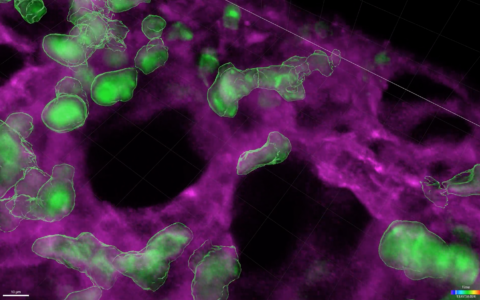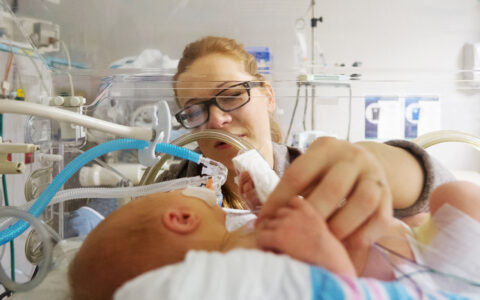Over the past few years hepatitis C virus (HCV) rates have doubled among pregnant women, reaching 3.4 per 1000 births nationwide – likely a consequence of the country’s opioid crisis.
A study by researchers at Monroe Carell Jr. Children’s Hospital at Vanderbilt and the Vanderbilt Center for Child Health Policy found that in Tennessee most infants exposed to HCV perinatally are not tested later to see if they acquired the virus.
“Given that the most common mode of transmission in the pediatric population is vertical transmission during pregnancy or during delivery, the rising rate of hepatitis C among pregnant women signifies an emerging public health threat to children,” said lead investigator Susan Lopata, M.D., assistant professor of pediatrics at Children’s Hospital.
Many Babies Being Missed
The finding, published in Pediatrics, was from a retrospective study funded by the National Institute on Drug Abuse of infants enrolled in the Tennessee Medicaid program. Using data from birth certificates and hospital/doctor billing, investigators reviewed history from more than 4,000 infants who were exposed to the virus during a 10-year period. The final report was highlighted in the October 2020 American Academy of Pediatrics’ guidance on neonatal opioid withdrawal syndrome.
“We wanted to see if children were being adequately tested per national guidelines,” Lopata said. “The guidelines call for hepatitis C-exposed infants to be tested at either two months old or at 18 months old. The gold standard is 18 months.”
The results for Tennessee were disheartening. Only 23 percent of 4,072 infants exposed to HCV were tested. Infants whose mothers were white versus African American (96.6 percent versus 3.1 percent), used tobacco (78 percent versus 70 percent), and were infected with HIV (1.3 percent versus 0.4 percent) were more likely to be tested. Infants exposed to HCV who had a significantly higher median of well-child visits (seven versus six) were tested most often.
“Many children were being missed or not adequately tested according to the medical guidelines,” Lopata said. “We believe that by the time a child reaches 18 months of age, pediatricians aren’t thinking about perinatal-acquired infections. They are looking at development milestones.”
Need for New Approaches
Stephen Patrick, M.D., director of the Center for Child Health Policy at Vanderbilt University Medical Center and senior author of the paper, said as the opioid crisis continues to spread, affecting more women and infants, there needs to be more focus on complications like HCV.
“There’s an urgent need to develop public health approaches to ensure we are treating women for hepatitis C infections before pregnancy, identifying infected women in pregnancy, and ensuring all exposed infants are appropriately monitored,” Patrick said.
Lopata thinks people will be shocked to discover that children are not being tested. “There is no universal screening for hepatitis C in pregnancy. Perhaps someday there will be an option to better identify moms and babies exposed so that down the road we can test them when appropriate.”
Until then, Lopata added, “Pediatricians need to be on alert.”







